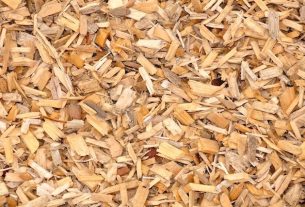Home remedies to combat coughing with phlegm during pregnancy should only contain substances considered safe for pregnancy, such as honey, ginger, lemon or beetroot, for example, as they soothe the throat and help make the phlegm more liquid. facilitating its elimination and relieving coughs.
However, despite being made with natural ingredients, home remedies that contain honey in their composition should not be used if the pregnant woman is allergic to honey, pollen or propolis, as well as if she has gestational diabetes.as it can make blood glucose control difficult.
In addition to these home remedies, pregnant women should drink plenty of fluids, in addition to avoiding cold, heavily polluted or dusty places in the air, as these factors tend to make the cough worse. Find out more about how to combat coughing during pregnancy.

4 home remedies for coughing during pregnancy
Some home remedy options for coughs during pregnancy are:
1. Lemon and ginger tea
Lemon and ginger tea is a good homemade option to relieve coughs during pregnancy, as the phenolic compounds in ginger, such as gingerol, chogaol and zingerone, have antioxidant and anti-inflammatory properties, which facilitate the elimination of phlegm and help to fight cough.
Furthermore, the vitamin C in lemon helps to strengthen the immune system and improve the body’s defenses, helping to fight infections.
Ingredients
- 1 g of ginger;
- 1 lemon with peel;
- 1/2 glass of water.
Preparation mode
Cut the lemon into cubes, slice the ginger and then place all the ingredients in a pan to boil. After boiling, cover until it cools, strain and drink 1 tablespoon of this tea, twice a day.
Although there is some controversy surrounding the use of ginger, there are no studies that prove its negative effect on pregnancy, and there are even some studies that point to its safety. Even so, the ideal is to avoid taking a dose of 1 gram of ginger root per day, for a maximum period of 4 days in a row.
This tea should not be used close to childbirth or by women with a history of miscarriage, clotting problems or who are at increased risk of bleeding. Check out the list of teas that should not be used during pregnancy.
2. Beetroot syrup with honey
Beetroot syrup with honey can be used to help treat coughs, flu or colds, due to its anti-inflammatory properties of the respiratory tract and helping to improve the immune system.
Additionally, honey also helps lubricate the throat and reduce tissue irritation, relieving coughs.
Ingredients
- 1 raw beet;
- 2 tablespoons of honey.
Preparation mode
Wash and cut the beetroot into thin slices and place in a clean, dry glass container. Add the honey and mix. Let it rest for 24 hours and after that time collect the liquid part that formed, which is the syrup. It is recommended to take 1 tablespoon of syrup, 3 times a day until symptoms disappear.
3. Onion syrup
Onion syrup helps relieve coughs due to the resins that onions release with expectorant and antimicrobial properties, and honey, which hydrates the throat and helps make phlegm more liquid, making it easier to eliminate.
Ingredients
Preparation mode
Finely chop a large onion, cover with honey and heat in a covered pan over low heat for 40 minutes. Afterwards, the preparation must be stored in a glass bottle, in the refrigerator. You can take half to a teaspoon every 15 to 30 minutes, until the cough calms down.
3. Pineapple and honey syrup
Pineapple syrup is rich in bromelain, which is an enzyme found mainly in the fruit’s core, with anti-inflammatory, mucolytic and antitussive action, as it breaks down phlegm, facilitating its elimination and relieving coughs. See other benefits of pineapple.
Ingredients
- 2 pineapple slices, with the core and without the skin;
- Half a cup of honey.
Preparation mode
Place the chopped pineapple slices and honey in a pan and cook over low heat for 40 minutes, mixing constantly to avoid sticking to the pan. Then turn off the heat and add the syrup to a clean, dry glass until it cools. You can take 2 tablespoons of this syrup per day.
Pineapple syrup with honey should be stored in the refrigerator for a maximum of 1 week. After this period, discard any unused quantity.
Care when using home remedies
Pregnant women should be careful when using home remedies for coughs during pregnancy, as most contain honey in their composition.
Therefore, pregnant women who are allergic to honey, propolis or pollen should not use home remedies that contain honey.
Furthermore, they should not be used by pregnant women with gestational diabetes, as it can increase the amount of sugar in the blood and make blood glucose control difficult.
When to go to the doctor
If the cough does not improve or ease within about 3 days or if other symptoms such as fever, sweating and chills are present, you should inform your obstetrician, as these may be signs of complications, such as an infection, and it may be necessary to take antibiotics prescribed by your doctor. doctor.

Sign up for our newsletter and stay up to date with exclusive news
that can transform your routine!
Warning: Undefined array key "title" in /home/storelat/public_html/wp-content/plugins/link-whisper-premium/templates/frontend/related-posts.php on line 12
Warning: Undefined array key "title_tag" in /home/storelat/public_html/wp-content/plugins/link-whisper-premium/templates/frontend/related-posts.php on line 13



